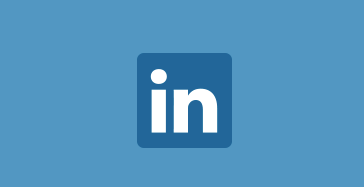Thought Leadership
The new relationship between upselling cadence and guest engagement

For the hospitality industry, the last 12 months has been a long arduous year shrouded by uncertainty. And while we haven’t seen the back of Covid yet, as a society we are optimistically moving forward. States are beginning to reopen their businesses, numerous countries are lifting restrictions and with it, travel is beginning to resume. However, as hotels work toward recovering occupancy levels, digital guest engagement will become more important than ever, playing a key role in recovery.
Communicating with guests in a post-Covid world
By its very definition, hospitality is the relationship between a guest and a host. Each time a hotel interacts with a guest, it offers the potential to improve guest engagement and strengthen the emotional connection they have to your brand. At its core, hotel guest engagement involves touchpoints along a guest’s stay, such as the booking process, check-in and out, on-site services, and staff interactions. However, the challenge comes in transitioning these touchpoints to digital, while still maintaining a sense of human connection. Why? There is a misconception that digital guest engagement is a model that decreases engagement with staff or a brand and compromises the human aspect of the hospitality. To many hoteliers, technology lacks authenticity, disengages the guests and diminishes a brand’s ability to ‘wow’ the guest in the moment – when in fact, the opposite is true.
Pre-Covid, digitalization of communication had already been taking place. Travelers sought more to get things done while on the go. And engagement was becoming increasingly self-serviced. The pandemic has accelerated this desire – and need. Not only have guests grown accustomed to the convenience factor of digitalization during the pandemic, but many guests will also want to minimize physical contact with hotel staff and collateral. Similarly, hotels are now needing to get by and get more done with fewer resources. A consistent cadence of upsell communication provides an excellent way to let hotels explore the full range of amenities available while deepening the relationship between hotel and guest.
Digital guest engagement leads to easier upselling…
It’s not always easy to upsell products or services, but an engaged customer is likely to commit to more. In fact, there’s a direct and proven correlation between the level of guest engagement and business profitability. A study by Constellation Research reported that companies who improve engagement can increase cross-sell revenue by 22 percent, up-sell revenue by 38 percent and order size by 5 to 85 percent. Similarly, fully engaged customers represent a 23% premium in terms of wallet share, profitability, and revenue as well as relationship growth and increased reputation score over average customers. Queue digital guest engagement and upselling becomes a whole lot easier – and lucrative.
…and upselling deepens guest engagement.
With digital upselling, hoteliers have the ability to create incremental opportunities to engage with customers consistently throughout the reservation lifecycle and beyond. So, while lower margin services may not move the revenue needle as much as room upgrades, early check-in and late departure, sending periodic communications with small offers of breakfast, chocolates, bike rentals, tours, activities etc. throughout pre-stay and onsite creates a new kind of service relationship. Not only does this digital outreach create more opportunities for face-to-face engagement but a greater sense of engagement softens guest complaints and bad reviews. Plus, it has the potential to improve share of wallet, RevPAG (Revenue per available guest).
With everyone’s experience with the pandemic, hotel operations have somewhat changed, but the importance of communication and guest engagement has not. An engaged customer is a happy and loyal customer – and technology can be the facilitator or conduit in fostering that relationship. When driven by upselling, digital guest engagement can strengthen loyalty, power retention and more importantly drive revenue.


